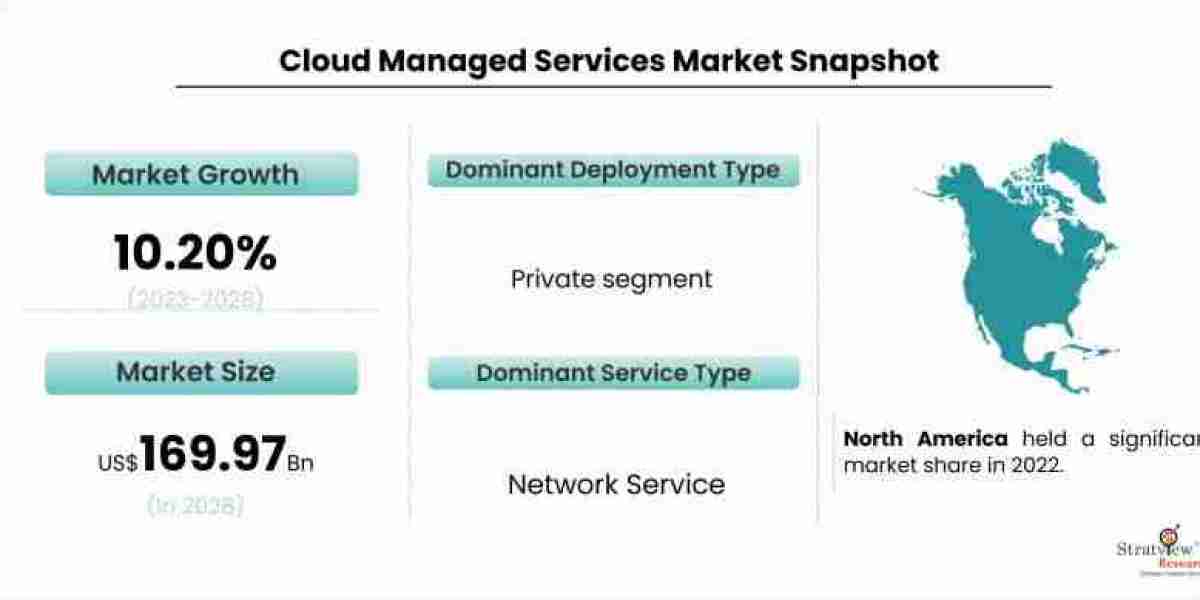In today's digital era, data security and compliance are of utmost importance for businesses across industries. As organizations increasingly rely on cloud computing for their IT infrastructure, ensuring the security and compliance of data in the cloud has become a critical priority. Cloud managed services providers (MSPs) play a vital role in helping businesses navigate the complex landscape of data security and compliance. In this article, we will explore the crucial role of cloud managed services in ensuring data security and compliance.
Robust Security Measures:
Cloud managed services providers are well-versed in implementing robust security measures to protect data stored in the cloud. They employ industry-leading security technologies and best practices, such as encryption, access controls, firewalls, and intrusion detection systems, to safeguard sensitive information. MSPs continuously monitor and assess the security posture of the cloud infrastructure, identifying potential vulnerabilities and proactively addressing them. By leveraging the expertise of MSPs, businesses can significantly enhance the security of their data and mitigate the risk of data breaches.
Compliance with Industry Regulations:
Compliance with industry-specific regulations and standards is essential for businesses to protect customer data and maintain their reputation. Cloud managed services providers have a thorough understanding of regulatory requirements and ensure that their clients' cloud environments comply with relevant regulations such as GDPR, HIPAA, PCI DSS, and others. MSPs work closely with businesses to implement the necessary controls, processes, and policies to meet compliance obligations. They conduct regular security audits and assist with compliance documentation, providing businesses with the assurance that their data is handled in accordance with legal and industry requirements.
Continuous Monitoring and Incident Response:
Data breaches and security incidents can have severe consequences for businesses, including financial losses, reputational damage, and legal liabilities. Cloud managed services providers employ advanced monitoring tools and technologies to continuously monitor the cloud infrastructure for any suspicious activities or security breaches. In the event of an incident, MSPs have well-defined incident response protocols in place to detect, contain, and mitigate the impact of security breaches promptly. Their expertise in incident response helps minimize the downtime and potential damage caused by security incidents, enabling businesses to resume operations quickly.
Disaster Recovery and Business Continuity:
Data loss and service disruptions can disrupt business operations and lead to significant financial losses. Cloud managed services providers offer comprehensive disaster recovery and business continuity solutions to ensure that businesses can quickly recover data and resume operations in the event of a disaster or system failure. MSPs implement backup and recovery mechanisms, replication strategies, and failover capabilities to ensure data availability and minimize downtime. They regularly test and update disaster recovery plans to guarantee that businesses can efficiently recover from any unexpected incidents.
Expert Guidance and Risk Mitigation:
Cloud managed services providers act as trusted advisors, offering expert guidance and recommendations to mitigate risks associated with data security and compliance. They stay up to date with the latest security threats, emerging technologies, and regulatory changes, providing businesses with insights and best practices to ensure data protection. MSPs conduct risk assessments and help businesses implement risk management strategies to proactively address potential vulnerabilities and ensure a secure and compliant cloud environment.
Conclusion:
Data security and compliance are critical considerations for businesses when leveraging cloud computing. Cloud managed services providers play a pivotal role in ensuring the security and compliance of data in the cloud. By implementing robust security measures, ensuring compliance with industry regulations, providing continuous monitoring and incident response, offering disaster recovery and business continuity solutions, and offering expert guidance, MSPs help businesses safeguard their sensitive information, maintain regulatory compliance, and mitigate risks. Partnering with a reliable cloud managed services provider allows businesses to focus on their core activities while ensuring that their data remains secure and compliant in the dynamic and ever-evolving digital landscape.









